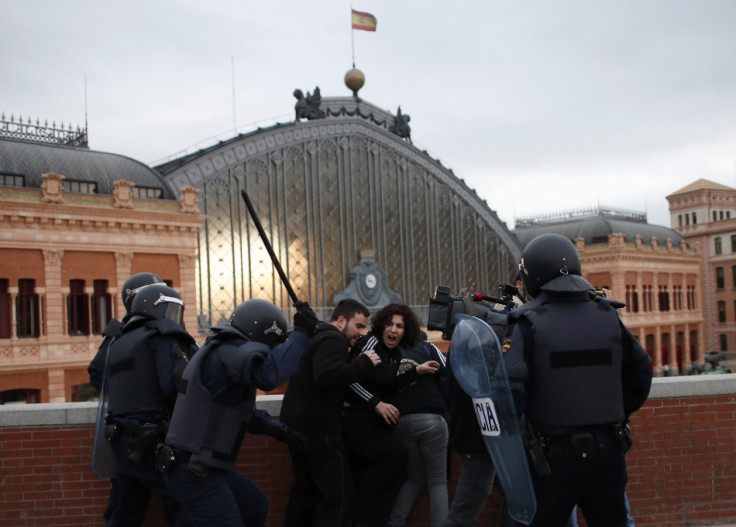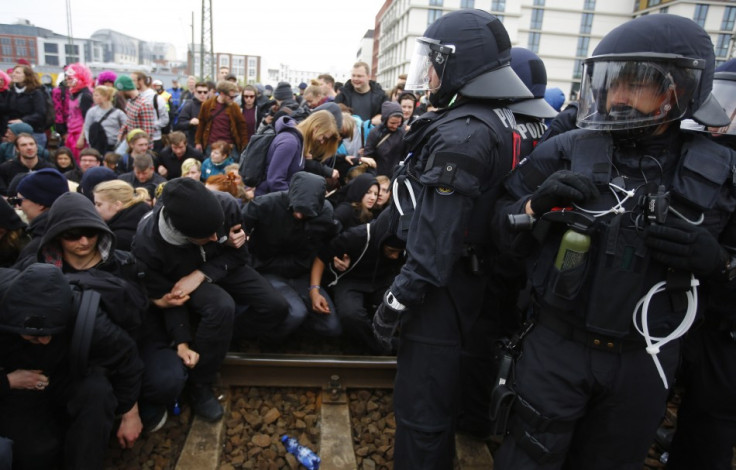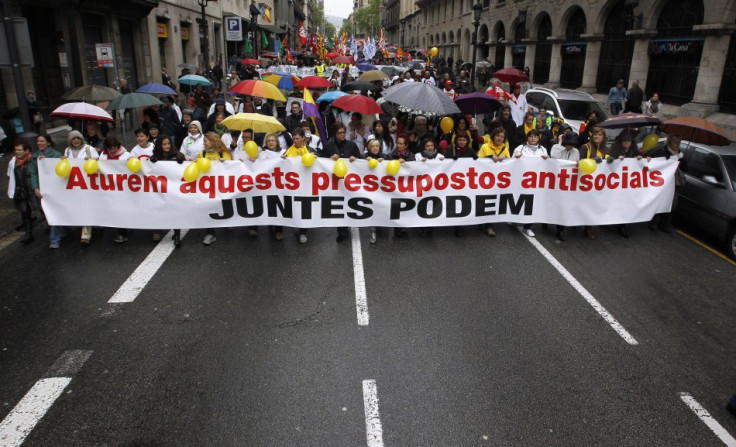Schuman Declaration to European Union: From Unification to Nationalism Resurgence

After two World Wars, the Schuman Declaration sought to put an end to political tension and created the foundations for the European Union.
Fast-forward 63 years later and the growing hostility between EU members is threatening to unravel the unification and peace that the declaration originally created.
When French Foreign minister Robert Schuman forged the historic and unprecedented proposal, to unite Europe with a trade agreement, it essentially laid the foundations of the 27-member bloc we have today.
Born out of the rubble of two World Wars, on 9 May 1950, the agreement gave birth to the formation of the European Coal and Steel Community and an infant EU.
"World peace cannot be safeguarded without the making of creative efforts proportionate to the dangers which threaten it," said Schuman at signing of the declaration.
"Europe will not be made all at once, or according to a single plan. It will be built through concrete achievements which first create a de facto solidarity. The pooling of coal and steel production... will change the destinies of those regions which have long been devoted to the manufacture of munitions of war, of which they have been the most constant victims."
Laying the Foundation for the European Union
Dubbed the Inner Six, France, West Germany, Italy, the Netherlands, Belgium and Luxembourg agreed to pool coal and steel production, in order to prevent Germany from re-arming again and threatening Europe's hard-won peace.
Other European countries were also invited to sign the agreement.
The declaration also promoted rapid integration for Germany into the international community, only five years after World War II ended.
While over the years, accession negotiations have led to today's 27-member bloc, it is still in the process of enlargement, as more countries look to join the EU. It has also led to separate governments gradually harmonising national laws.
However, over a half a century later, despite winning a Nobel Peace Prize last year and forming a single currency, tension surrounding the EU is mounting again.
Anti-European Dissent

The EU has a population of 500 million people but distrust within the 27-member bloc is growing exponentially.
According to the public opinion service of the European Commission called Eurobarometer in November last year, 72% of Spanish nationals said that they "tended not to trust the EU," compared to just 23% just before the onset of the credit crisis.
In Italy, the figure has spiked to 56% from 41% over the same period.
The poll results are unsurprising as the Eurozone jobless rate rose to a new record high in March this year.
The region's largest economies reported little improvement on the employment front. Italy's unemployment rate is still at a 20-year high.
Spain's unemployment rate also hit a record high in the first three months of this year, as Europe's fourth-largest economy continues to struggle to create jobs, amid its deepening recession.
Britain is also not faring well.
According to the Office for National Statistics last month, UK unemployment rose by 70,000 to 2.56 million between December and February.
Rise of Nationalism

High unemployment, more people slipping into poverty and losing their homes has undoubtedly given rise to nationalism.
Last week, the President of the European Commission Jose Manuel Barroso said Europe was under threat from a "resurgence of populism and nationalism."
"At a time when so many Europeans are faced with unemployment, uncertainty and growing inequality, a sort of 'European fatigue' has set in, coupled with a lack of understanding. Who does what? Who decides what? Who controls whom and what? And where are we heading? ... And, let us be clear, the indifference of many pro-Europeans is also a risk."
In Greece, where austerity measures have been severely taking its toll on nationals, the popularity for the country's anti-immigrant party Golden Dawn has risen.
The announcement was seen as popular move for the voters as many see the EU as a set of institutions that are bureaucratic and an anti-democratic infringement on Britain's national sovereignty.
On the 3 May, Britain's local elections proved the rise in nationalism.
Ukip, a British anti-immigration party, scooped a quarter of all votes cast, for the first time.
Led by Nigel Farage, the party continued its surge in popularity and declared that the election results meant that Ukip was now Britain's "third party".
Traditionally, the three incumbent UK political parties are Labour, the Liberal Democrats and the Conservatives.
Battling on a Bailout

The EU maybe battling to drag Europe out of an economic hole but a monetary union, without a political union, has already caused mass friction.
As the Eurozone sovereign debt crisis still weighs heavily on all member states, confusion over how to resolve the crisis is getting worse.
Anti-austerity and anti-immigration protests and riots are mounting, despite empirical evidence from a number of sources, that countries' economies benefit from immigration.
Austerity measures maybe unpopular but bailouts only put economies on a life-support machine.
It does not fix the overall health of the economy.
We are in a socio-economic and political loop and are in danger of undoing the peace, unification, industry structure that the Schuman Declaration created 63 years ago.
© Copyright IBTimes 2025. All rights reserved.




















